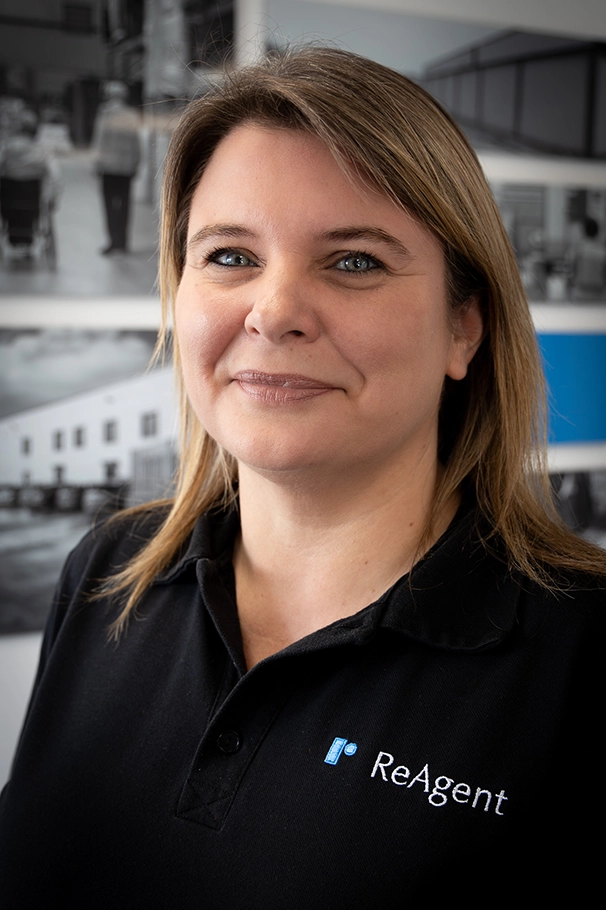Anyone about to embark on a career in science will understand the hurdles and confusing paths ahead of them.
Which direction should you take? The more conservative and typical route may guarantee you a comfortable life, but a career that breaks out of the ordinary could lead to your own unique role in the science world.
ReAgent set out on a mission to contact people with a connection to the world of science that have had fame or successful careers in a science-related field, for a whole range of different reasons. These individuals have personally offered words of advice to young people who want to build a career in science and we hope they inspire you to follow your ambitions.
In this post:
Dr Donna Nelson

Dr Donna Nelson was the science consultant for award-winning American TV series Breaking Bad. She advised the show in regards to organic chemistry, checked the scripts and did chemical drawings as props. Dr Nelson has won a number of awards, including ACS Oklahoma Chemist of the Year and a National Organisation for Women “Women of Courage” Award.
There are plenty of opportunities for a career in science, but students must be sufficiently savvy and fearless to jump outside the traditional job description. I’ve created projects and activities which would not typically be described as traditional. These projects are in addition to the usual experimental projects of characterizing functionalized single walled carbon nanotubes, or establishing a uniform mechanistic approach toward additions to alkenes. The non-traditional research is;
- The Nelson Diversity Surveys, which quantified the representation of women and minorities among STEM professors at research universities
- Critiquing and comparing the textbooks which are used to teach comprehensive undergraduate organic chemistry
- Science advising to popular productions, such as the television show “Breaking Bad.”
I’m sometimes asked to relate advice which I would give to students.
Three attitudes that I took which helped me identify and succeed in projects such as those mentioned above are:
- Dream BIG. “If you shoot for Mars, you’ll at least hit the moon.”
- Be PERSISTENT. “Don’t give up. Don’t let others discourage you.”
- Be READY. “Be able to recognise a great opportunity and seize it.”
Dream BIG. Be PERSISTENT. Be READY.
– Dr Donna Nelson.
You can follow Dr Donna Nelson on twitter.
Sir Paul Nurse

Sir Paul Nurse is the President of the Royal Society. He received the Nobel Prize for Physiology or Medicine in 2001 and is now the Chief Executive of the Francis Crick Institute, which works to diagnose, treat, and prevent illnesses.
Be passionate about what you do.
You can follow the Francis Crick Institute on twitter.
Professor Hal Sosabowski

Professor Hal Sosabowksi, also known as Dr Hal, is a chemistry lecturer at the University of Brighton. He has launched a range of educational games, with the aim of engaging players in subjects and getting them to learn through play. He carried out the first ever chemistry experiments in the Houses of Parliament, as part of his mission to get the public interested in science.
It’s a slightly hackneyed expression that “chemistry can open lots of doors for you” but for me, that’s precisely what it did, and by my own admission I was at best what might be described as a “late developer”.
I am a Professor of Public Understanding of Science and found my role almost by chance. In the past year I have carried out high end science shows in Moscow, Abu Dhabi, and Belgium. Last week, and for the second time, I did a science show in parliament (including a couple of good-natured explosions) and am currently working on the third series of Operation Ouch! – a BAFTA-winning children’s science programme. I have also developed my own range of children’s science trump games which really work and which children seem to love. I really love what I am doing and I can’t believe I get paid for it.
The point is, you need to do what you really like, and what you are best at. I started doing live science shows when I was working in South Africa and used live spectacular demos to make the lectures a bit more of a blast. That then developed into a low-scale science show I did with a Russian postgraduate, and every now and then when things didn’t work there was quite a lot of comedy in her protesting her innocence in heavily-accented English, and I realised that the comedy increased the impact of the show.
I really love what I am doing and I can’t believe I get paid for it.
– Professor Hal
When I came to Brighton I carried on with live shows but it was a slow start and I clearly remember doing our first show to 18 school children. As the show developed, the audiences grew and we got to the point where we were and still are doing shows to audiences of 5,000. By chance, I was contacted by a television company who wanted a Christmas chemistry experiment. They liked what we had to offer and I contributed to the show (ITV’s Ministry of Mayhem) on a regular basis. Television is a close-knit world and your reputation passes around and now I am asked to either consult for shows or appear on them and have worked with Professor Brian Cox, Professor Lord Robert Winston, Jim Al-khalili and Jamie Oliver. The live science has taken off and we have an international reputation of offering high impact science with tangible learning outcomes.
My key career recommendations for those that want to get into public engagement:
Do what you really like, enthusiasm is infectious.
Do what you really like, you only have 650,000 hours on this Earth, use them wisely.
If you want to work in science-on-TV be prepared to kiss many frogs before you get to kiss a prince(ss).
If you love your job, you never do a day’s work in your life.
– Professor Hal
If you want to work in science-on-TV, be fatalistic about spending lots of time on something that comes to nothing. A lot of production companies have to pitch for a programme which involves preparing and writing a proposal, most of which will come to nothing. Do it with a good heart, because if you appear willing and helpful on a failed pitch you will be in play for the next one which might work.
Try to write articles on popular science at the same time as working on your media persona; you need to be taken seriously and need to grow into an opinion former on science in society.
You can start with very modest beginnings and should expect to. Going out to schools and giving presentation and demonstration is an effective way of starting your Public Engagement activity.
You can develop a science-in-the-media career in parallel with a ‘normal’ research career. You should be thinking about public dissemination of your results anyway (most grants require this) but there are some simple ways to start to develop you persona. I used to (and still do) call LBC’s Mystery Hour show where members of the public ring in with questions that other listeners answer on-air. After a while you get to be known, and now I am ‘Professor Hal’ the patron Saint of Mystery Hour.
Above all else, love what you do and do what you love. If you love your job, you never do a day’s work in your life.
You can follow Professor Hal on twitter.
Dr Aubrey de Grey

Dr Aubrey de Grey is a biomedical gerontologist based in Cambride, UK and Mountain View, California. He is the Chief Science Officer of SENS Research Foundation, a charity dedicated to combating the aging process. His research interests encompass the characterisation of all the accumulating and eventually pathogenic side-effects of metabolism (damage) that constitute mammalian ageing, and the design of interventions to repair that damage.
The single biggest mistake that bright young scientists most commonly make is to work in fashionable fields. There are three huge reasons not to do this: you will make very little difference to the rate of progress (because everything you discover would have been discovered ten minutes later by someone else if you hadn’t), you will need to be miserably mercenary and cut-throat in your relations with competitors in order to succeed at all, and there probably isn’t much to be discovered anyway because the big discoveries have already been made (and are what made the field fashionable in the first place).
Instead, pick a neglected field, one where you can make a difference. You may not get as many publications in double-digit-impact journals for the first few years, but you’ll probably improve your chances of getting grant applications funded, which counts more for promotion anyway. And you’ll have much more fun.
Pick a neglected field, one where you can make a difference.
– Dr Aubrey de Grey
You can follow Dr Aubrey de Grey on twitter.
Professor Polly Arnold

Professor Polly Arnold is a fellow of the Royal Society of Chemistry, whose research focuses on discovering new catalysts for chemical transformations and trying to understand the behaviour of nuclear waste. She is the Executive Producer of the book “A Chemical Imbalance” and works to promote women in STEM subjects.
My best advice would be to be optimistic and have total confidence in your ideas, but total scepticism about your results. Being true to yourself and constructively critical of all the science around you will keep your science in tip-top condition and fun.
The best parts of this job are the constant chance to learn and explore new things and talking to interesting people about new science.
Have total confidence in your ideas, but total scepticism about your results.
– Professor Polly Arnold
You can follow Professor Polly Arnold on twitter.
Garrett Lisi

Garrett Lisi is an American theoretical physicist, author and adventure sports enthusiast (especially surfing). He carries out independent research and proposed a new “theory of everything”, which covers all the elementary principles, as well as gravity.
Just like many adolescents, I struggled with figuring out the nature of existence. I studied a lot of philosophy, eastern and western, but came to conclude that usual human language wasn’t the right tool. I was unusually good at math, so when I began to learn how mathematics describes the universe, through physics, I was hooked.
The greatest successes in my life have come from long strings of questionable decisions and openness to getting epically side-tracked. In graduate school I chose to spend a lot of time studying mathematics that wasn’t obviously related to my dissertation, and became obsessed with figuring out a geometric description of electrons, compatible with Einstein’s geometric description of gravity. Once I got my PhD, I moved to Maui instead of getting a job, to work on this question, and to surf. Dropping out of the workforce to pursue my own ideas and projects was the toughest decision I’ve made, but ultimately turned out to be the best.
The greatest successes in my life have come from long strings of questionable decisions and an openness to getting epically side-tracked.
– Garrett Lisi
You can follow Garrett Lisi on twitter.
Dr Eric Scerri

Dr Eric Scerri is an author, chemist, and leading philosopher of science. He is the founder and editor-in-chief of the international journal ‘Foundations of Chemistry’. Dr Scerri isn’t afraid to oppose the views presented in the vast majority of textbooks and he continues to work on the foundations of the periodic table.
My advice to students and professionals wishing to succeed in a chemistry career is to pursue what you are interested in rather than what you think might eventually bring you wealth.
Wealth is important but not as important as satisfaction from one’s work.
With a little luck you can achieve both wealth and satisfaction by becoming the very best at your own special interest.
You can follow Dr Scerri on twitter.
Carl Zimmer

Carl Zimmer is a popular science writer. Although he’s not a scientist, he has written fifteen science books, one of which was named one of the ‘Top 100 books of the year’ by The New York Times Book Review, so we felt he was worthy of being included in our list. Here, Carl Zimmer gives tips for those wanting to pursue a successful career in science journalism. The following excerpt has been printed with permission:
I stumbled into this line of work without any proper planning in the early 1990s, when journalism was a very different industry. The answer to “How do I become a science writer?” is not equivalent to “How did you become a science writer?”
If you have developed a clear-eyed view of science journalism, the next question to ask yourself is, “Is this a field I want to enter?” Once you set off into science writing, you do not automatically receive a staff job, a retirement package, and a list of great stories to write for the next fifty years. You enter a fierce competition, either for an entry level job or freelance assignments. Pay can be lean, even at high-profile publications. Find in yourself the strength to cope in this environment. Rejection is not a career-ending catastrophe in the world of science writing; it is a regular part of experience.
It’s vital to be prepared to go in a direction you couldn’t have predicted at the outset.
– Carl Zimmer
Each budding science writer has to decide which path to take. I took the blind, twisted path I described earlier, but I’ve watched others take very different ones that led to solid careers. Some have started their own blogs, where they’ve taught themselves how to write in public. Others have simply bootstrapped themselves as freelancers, starting with small publications and using those clips to get into bigger ones. Some have gone to graduate school for science journalism, where they’ve been trained by seasoned veterans and have been placed at leading publications as interns. Some scientists-in-training have become AAAS Mass Media Fellows. And other people veer off in unexpected directions. They started out in science writing and became radio producers, for example, or made animations, or built apps.
These days, it’s vital to be prepared to go in a direction you couldn’t have predicted at the outset.
You can follow Carl Zimmer on twitter.
Frances Ashcroft

Frances Ashcroft is a Professor of Physiology. She was elected a Fellow of the Royal Society of London in 1999 and her research focuses on insulin secretion and diabetes. She has been awarded the Walter B. Cannon Award, the highest honour bestowed by the American Physiological Society. She is the director of OXION, which continues to make significant contributions to science and diagnosis, and has led to novel scientific discoveries.
Pick something you are passionate about – and just do it. Of course, you may encounter setbacks, but don’t let them stop you.
Pick something you are passionate about – and just do it.
– Frances Ashcroft
Alan Marnett

Alan Marnett is the founder of benchfly, a video platform for scientists designed by research and video experts. Alan comes from a family of chemists, and earned himself a Ph.D. in Chemical Biology. His experience in the lab led him to realise that the training and support process for research scientists wasn’t as developed as it could be, and that’s when he decided to create benchfly.
If someone had asked me 20 years ago where I thought I’d be today, I never would have guessed. Throughout my years at the bench, I prepared for a career in academics; however, as a postdoc I saw an opportunity to impact science in a different way and I pounced on it. It’s been five years since that decision and while I still love research, I couldn’t be happier.
A “successful career” in science—or anything for that matter—is subjective. Is it obtaining tenure? Publishing papers? Winning awards? I’ll leave it to you to define. Yet, in my opinion the one commonality among us is the desire to be happy. While happiness is also subjective, researchers and philosophers alike agree on a few key ingredients that drive this emotion (beyond Prozac…).
1. Take CONTROL of your project and career.
If we are told what to do at every step in our life, at some point we effectively become a robot—simply executing the orders of others. Every day, make the conscious decision to take control of something—maybe you decide to be proactive about career development for 15 minutes every night. Or maybe you start a small side project in the lab that you—and only you—are in charge of. Even small doses of control help fight off robot-itis.
2. Make PROGRESS.
Anyone who has spent more than a month in lab understands that research can be slow. Really slow. It can be months and even years before we achieve our next goal, “publish a paper”, “pass the qualifying exam”, “graduate”. We need to know that our hard work is resulting in progress. Recognize that research happens in seemingly microscopic steps and break larger goals down into more easily achievable steps to keep the progress train rolling, “purify more protein”, “write introduction”, “submit conference abstract”.
Every day, make the conscious decision to take control of something.
-Alan Marnett
3. CONNECT to a larger vision.
While many of us go into research to impact human health, after years in the lab it’s easy to put blinders on and focus so intensely on our projects that we lose sight of any connection to that original goal. It can be hard to see why mutating Tyrosine 218 means anything to anyone, which makes doing the experiment pretty boring. If you can’t step back and see how your project is connected—and believe it—look for other options to contribute. Volunteer in your spare time. Collaborate with someone closer to “the front lines” of the cause you’re passionate about.
4. Embrace FAILURE.
By its very nature, researchers work on the edge of human knowledge so it shouldn’t surprise us that a high degree of failure is inherent in the career. Of course, that doesn’t make it any easier. The trick is not to view failure as a horrible thing, but rather as something to be learned from and improved upon. I try to think of failures as getting me one step closer to success—sometimes we just have to go through a few of them before things break our way.
You can follow benchfly on twitter.
Lorelly Wilson

Lorelly Wilson runs Chemistry with Cabbage, which takes chemistry demonstrations and experiments into schools to encourage students to study sciences. She specialises in chemistry using household chemicals (like cabbage) so that students can try the experiments at home.
I really enjoy working with students, particularly younger ones, and seeing their faces light up when they achieve far more than they thought they could.
When I graduated in chemistry, I started working for ICI, first of all in Corporate Laboratory in Runcorn and then for Paints Division in Slough.
Having children changed my perspective entirely. It had never occurred to me to teach, but seeing my own children develop enquiring minds made me keen to do the same for others. By setting up my own business to work in schools it seems to me that I have all the fun of teaching without the boring bits!
Try experiments at home, for yourself, for your children or for your grandchildren. Last year’s Nobel Prize was for graphene, discovered by sticking sellotape onto pencil leads. You never know what you might discover.
Find out more about careers in chemistry in our chemistry careers resources hub.















